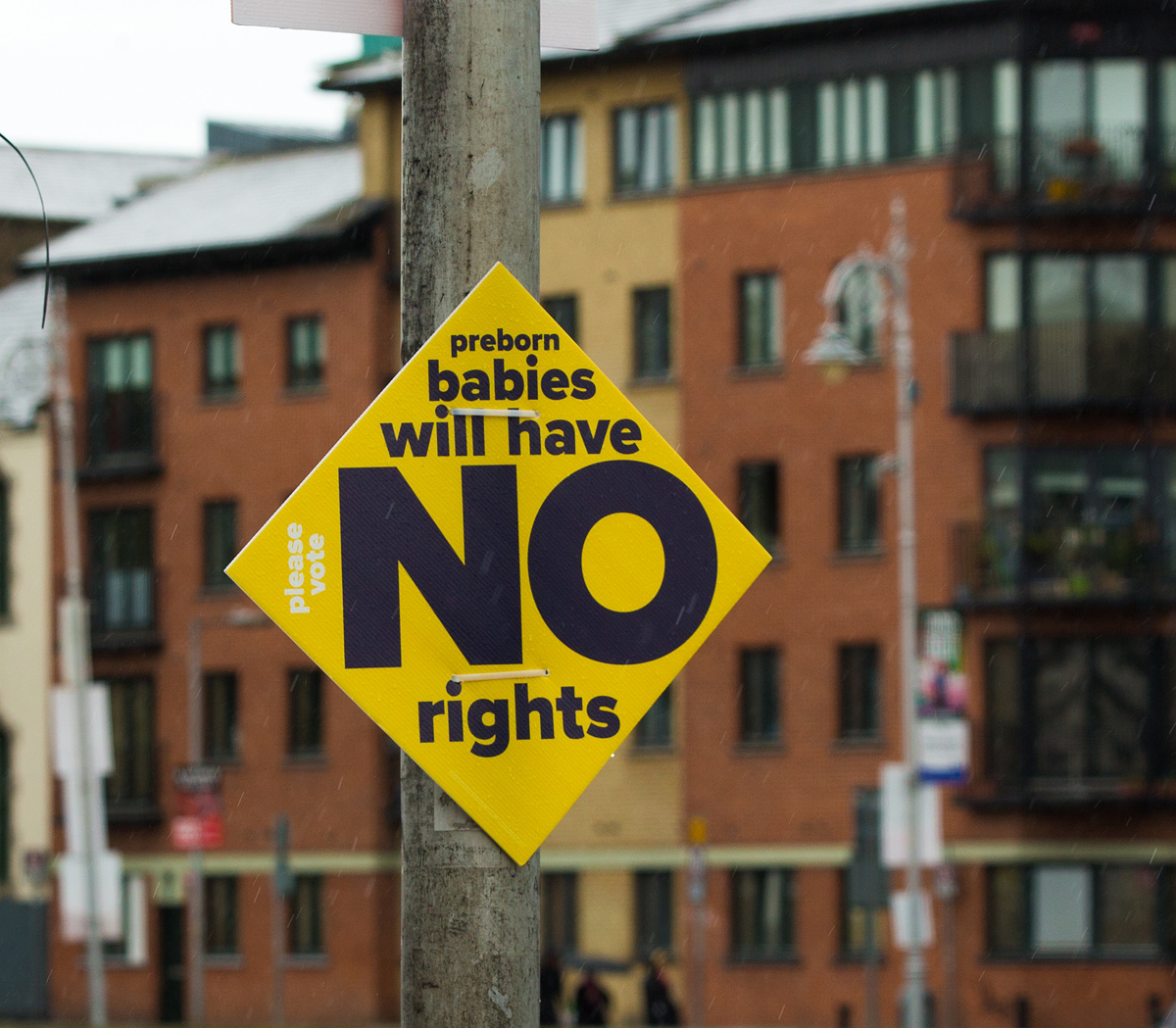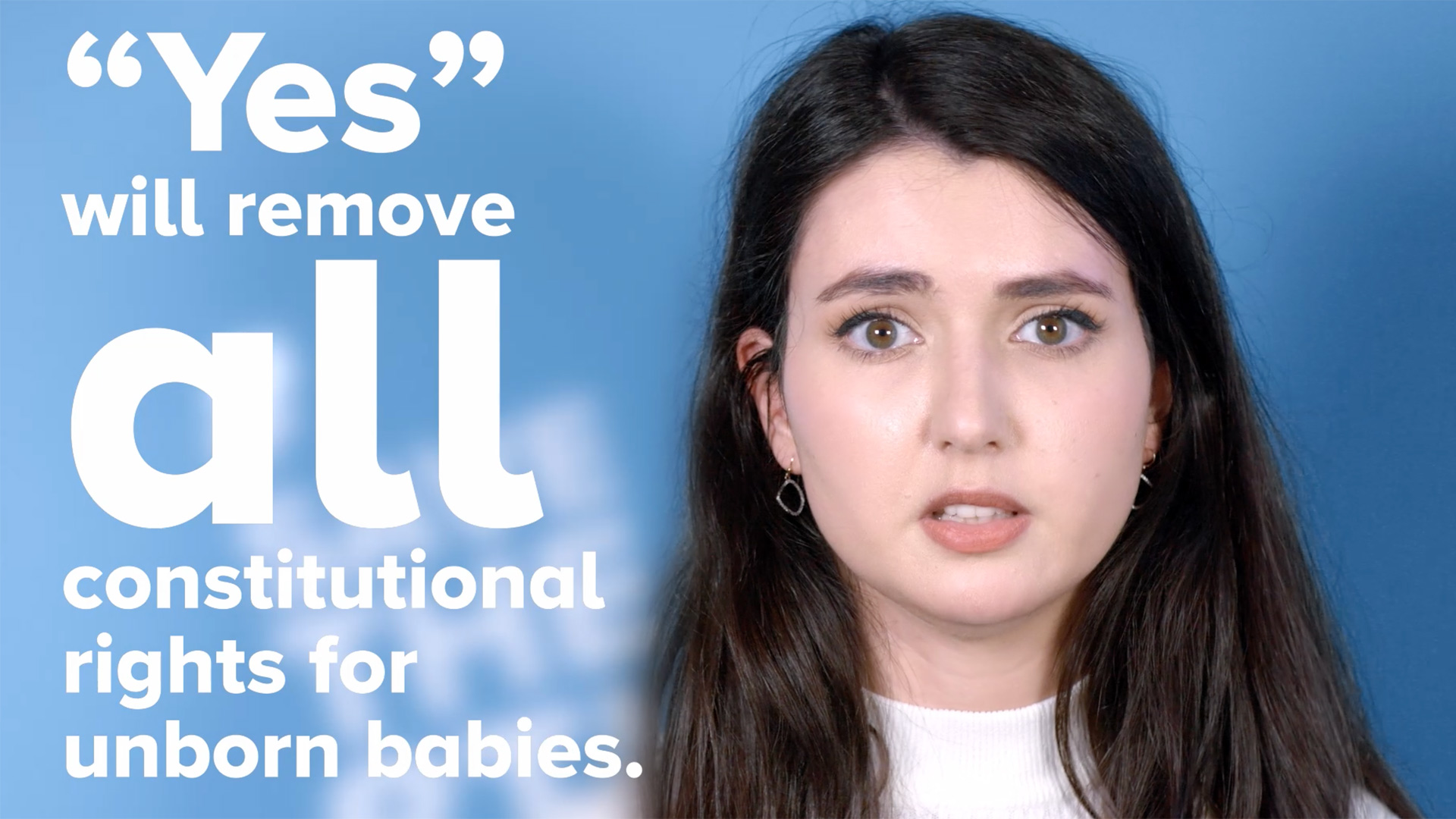"Preborn babies will have NO rights"
Says who? Over 200 legal professionals, including former High Court judges, it turns out.


The 8th amendment protects both mother and baby. Vote NO on 25th May

If you feel uncomfortable with some people having no rights, you need to VOTE NO on 25th May
The recent Supreme Court case, M –v- Minister for Justice and Equality, has shown us that the 8th amendment is the only part of our constitution that recognises the unborn as possessing constitutional rights.
Should the 8th amendment be removed the unborn will no longer be recognised as having any rights under the Constitution. This means that there is absolutely nothing stopping the Irish government, either this one or any in the future, from putting in place any abortion system they want.
Once the 8th amendment is gone the government will never have to ask the public to vote on this issue ever again. This is the one chance the Irish public will have to decide if the unborn should have the right to life, or if the unborn should have no rights at all. To decide if the unborn are human and worthy of protection, or if the unborn are not quite human enough to be worth our protection.
This is why nearly 200 legal professionals and experts, have signed a statement, readable below in full, calling on the public to refuse to strip all constitutional rights from the unborn and to vote no.
Signatories to the statement included Aindrias Ó Caoimh, Senior Counsel, and Former Judge of the High Court of Ireland and former Judge of the European Court of Justice; and Iarfhlaith O Neill, Senior Counsel, and Former Judge of the High Court of Ireland and Chairman of the Referendum Commission (Lisbon Treaty.)
Some of these professionals are deeply pro-life, but others say they would have supported amending the 8th amendment to allow for abortion circumstances, but this referendum is not about the hard cases, it’s about the total removal of constitutional rights from the unborn.
Statement Begins
"A ‘Yes’ vote in the coming referendum would remove all constitutional rights from the unborn child up to birth, and in their place, would give the Oireachtas an unlimited power to legislate for abortion.
The Government have published their plans for legislation and we, together with more than 175 of our colleagues in the legal profession, have signed and published a statement which makes it clear that these proposals will open the door to abortion in wide-ranging circumstances.
The reason for our conclusion is that the Government proposals provide for abortion for any reason up until 12 weeks and for abortion up until viability (that is, where a mother has carried her child for up to 6 months) for reasons so similar to the legislation in Great Britain that there is no rational basis for thinking that they would operate differently:
Legislation in Great Britain refers to a risk of injury to the physical or mental health of the mother. This Government’s draft legislation refers to a risk of serious harm to the physical or mental health of the mother. The similarity between the two is immediately obvious;
Mental Health is not defined in the proposed legislation. In Great Britain the overwhelming majority of abortions are carried out on the mental health ground;
“Serious harm” is a far more general and imprecise term than “injury” which is the basis of a legal entitlement to an abortion in Great Britain;
Under this Government’s proposed legislation, medical practitioners need only be of opinion that the carrying out of an abortion is “appropriate” and not as one might have expected, “necessary”;
The main dissimilarity between the abortion legislation in Great Britain and the Government’s proposed legislation is that, in Great Britain, the legislation is more restrictive since there is no 12 week period, as is proposed here, during which period an abortion can be carried out for any reason.
Where a healthy mother requests the abortion of her healthy baby after, say, 21 weeks because she believes that the stress of carrying the baby to term poses a risk of serious harm to her mental health, the effect of this Governments’ proposals is made clear. Furthermore, the statements of a number of prominent experts campaigning for a ‘Yes’ vote confirm that the result of the legislation will be abortion on request.
Our original statement, which we signed along with our colleagues, pointed out that legislation can be changed at any time without the consent of the People or may be challenged in the courts."
Statement Ends
In Article 40.3.3° of the Constitution of Ireland (“the Eighth Amendment”) the State “acknowledges the right to life of the unborn and, with due regard to the equal right to life of the mother, guarantees in its laws to respect, and, as far as practicable, by its laws to defend and vindicate that right.”
The Eighth Amendment respects the right to life of mothers. As its wording makes clear, it protects the right to life of the unborn only to the extent that such protection is consistent with the right to life of the mother.
In the recent case of M –v- Minister for Justice and Equality, the Supreme Court has held that the rights of the unborn under the Constitution are limited to those rights which are acknowledged in the Eighth Amendment.
Accordingly, the repeal of the Eighth Amendment would entail the removal from the Constitution of the existing acknowledgment of the right to life of the unborn and the removal of constitutional protection for the unborn boy or girl in the womb.
If the Eighth Amendment is repealed, the Government has signalled its intention to place legislation before the Oireachtas. The proposed legislation would allow the life of the unborn to be ended for any reason up until twelve weeks, and far beyond that on grounds which have led to abortion on demand in other jurisdictions. In addition, such limitations on abortion as may be set in the legislation could be removed at any time without the consent of the People.
It is clear, therefore, that what is being proposed is not simply abortion in exceptional cases but a wide-ranging right to abortion.
Each person was, by definition, once unborn. As we mature, our capacity to assert and enjoy rights may increase over time. Likewise, our capacity may decrease due to serious illness, old age or other reason. At all stages, however, born and unborn, we remain the same human being with the same inherent dignity and equal and inalienable rights. These human rights rest on the foundation-stone of the right to life. Life is the constant which makes the exercise of every other human right possible.
As lawyers drawn from every level of the profession, both currently in practice and those now working in other fields, we hope that, having considered what is at stake in the coming referendum and the far-reaching proposals of Government, our society will conclude that it would be profoundly unjust to withdraw the existing constitutional protections from the unborn child or to give Government the power that they seek to legislate in this area.
